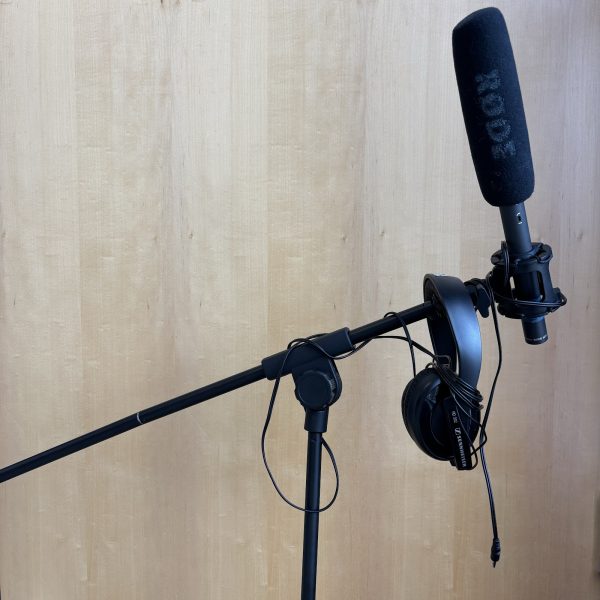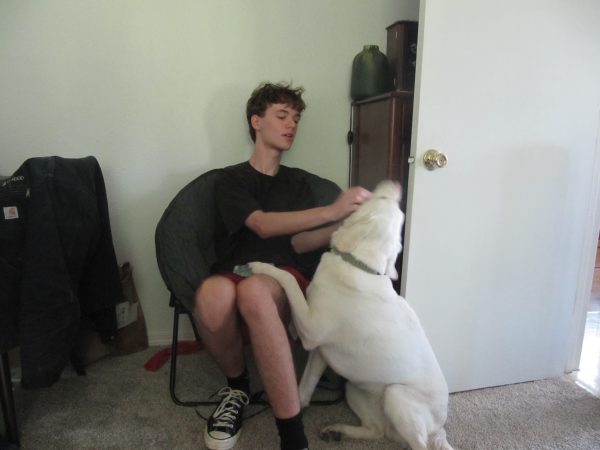
Content Warning: Rape and sexual assault are mentioned.
Podcasts have been gaining popularity in 2024, serving as a significant source of information and entertainment, and offering an alternative way for people to stay informed about current events. Many enjoy podcasts for a good laugh, wanting to block out the typically disturbing current news and events. According to Edison Research, there are 546 million podcast listeners worldwide, with Millennials and Gen Z making up 61.6% of these listeners. However, the increase in podcast popularity comes with drawbacks. The medium has created and helped grow a hateful genre of podcasts, called “alpha male” podcasts. These podcasts often promote many problematic ideologies, like toxic masculinity and misogyny.
Many “alpha male” podcasters can fly under the radar as they present themselves as self-improvement, lifestyle, debate, or advice podcasts. They tend to be aimed towards insecure young men and teenagers, leaving the largest impression on these populations. These deviants often brag about their lives while degrading others, promote misogynist ideas through their assumably limited experiences with women, and share a one-size-fits-all mindset — usually a simplified solution to a much larger problem, typically relating to physical appearance or financial issues.
To identify this genre and set the scene, let’s break down a few key quotes from the “Good Bro Bad Bro” and “The Joe Rogan Experience” podcasts.
The “Good Bro Bad Bro” podcast’s YouTube bio says, “A podcast about dating and self-improvement for men. … Improving your confidence. Improving your lifestyle. … Getting higher quality girls. Getting multiple girls. … Becoming high value. Working on yourself instead of hating on women.” From this, we can immediately make the impression that the target audience is young men. For young men and teenage boys with low self-esteem, the promise of becoming a high-value man is irresistible. Even the titles of their episodes attract viewers by appealing to a one-size-fits-all mentality, such as, “How to Get a Girlfriend,” “The Easiest Time to Get a Girlfriend,” and “How to Stop Low-Value Behavior in Men.” A video that got them in trouble was when co-host Jack Denmo asked if listeners knew any girls who “actually had hobbies.” In response to the now-deleted episode, viewers on TikTok were mocking the hosts, questioning their intelligence and whether or not they should even host a podcast. After this, they stopped posting their podcast on every platform.
The “Good Bro Bad Bro” podcast is a much more obvious example of an “alpha male” podcast, although “The Joe Rogan Experience” podcast audience is exponentially larger than the “Good Bro Bad Bro” podcast’s. Rogan is a lot more subtle with his messaging because the podcast discusses a wide variety of topics. He describes his views as “socially liberal” and agrees with a few progressive ideals; however, he also holds a majority of values opposing them. He believes in gun rights and heavily criticizes transgender people in professional sports. His views are very much integrated with his podcast and influence the guests he arranges to have.
Rogan has had many controversial people on his podcast, including President-elect Donald Trump, Vice President-elect JD Vance, and Elon Musk. With his guests, he has continuously endorsed misinformation and hate speech about a range of topics. Rogan has admitted to repeatedly saying the N-word, laughed at a joke when his guest comedian Joey Diaz made a joke about pressuring women into oral sex, and falsely claimed the COVID-19 vaccine can alter your genes. While there are numerous examples to consider, the main point remains clear: Rogan acts as an enabler, often facilitating and supporting controversial ideas and behaviors. He has built a massive following and has chosen to use it to spread misinformation and give a platform to people who do the same.
But why are these podcasters using their platform like this? While we cannot delve into their minds, some answers like money, power, or fame could apply. They have proven time and time again that they will do anything to achieve their goals, no matter who they harm in the process. This mentality is very concerning, and the insatiable desire for money will forever exploit the rapidly growing power of social media. Addi Price, an avid podcast listener, disagrees with a lot of the messaging these content creators share. “I listen to a lot of podcasts … and these [‘alpha-male’] podcasters use their platforms to share potentially harmful language and don’t see what their effect is because the internet creates this wall between the viewer and content creator.” Their content will continuously evolve and remain under free speech protections, attracting vulnerable individuals like young men.
Aside from the misogyny, mansplaining, and misinformation, some of these podcasters are an actual threat to society. One of the most notorious ‘‘alpha male’’ podcasters is the self-proclaimed “king of toxic masculinity,” Andrew Tate. He was charged with rape and human trafficking in 2023. It is alleged that he and his brother lured women to Romania under the pretense of a romantic relationship and then forced them into carrying out pornographic acts under duress, which were filmed. His social media presence was so disturbing that he was individually banned from every major platform. He constantly glorified control over women, saying that “women belong at home” and are “given to the man and belong to the man.” Although his social media accounts were deleted, he still found ways to get his voice heard by going on other people’s podcasts — agreeing to participate in debates and interviews.
The 2024 presidential race heavily impacted podcasts this year. Trump went on Rogan’s podcast while Kamala Harris went on “Call Her Daddy,” hosted by Alexandra Cooper. These podcasts were chosen strategically to match each host’s intended audience. However, Trump’s decision proved more effective. He won the majority of young male voters, who Harris was already struggling to connect with. According to data from Edison Research, 56% of Rogan’s listener’s ages ranged from 18 to 34, and 81% were male.
Allen Ma and David Rodriguez are avid listeners of Rogan’s podcast. Rodriguez and Ma watch for entertainment purposes but have seen firsthand the influence Trump has on Rogan. “It had some sort of impact that Trump did not have, like college students and stuff like that beforehand,” Ma said, with Rodriguez clarifying, “Young people listen to Joe Rogan. Joe Rogan says he endorses Trump. Young people then go for Trump.” Other prominent male influencers who endorsed Trump, like YouTuber turned boxer Jake Paul, also have demographics that skew young males. After the first “podcast election,” the medium is likely to continue playing a role in future campaign cycles.
Figures like Rogan and Tate demonstrate how unchecked platforms can amplify the exploitation of free speech. By categorizing harmful rhetoric as self-improvement or debate, these podcasters are allowed to target the vulnerable. If you fit the demographic for “alpha male” podcasts, it can be challenging to broaden your preference. However, embracing a wider range of viewpoints can be very rewarding. Some examples that challenge the concept of “alpha male” podcasts — and are also my personal favorites — include “The Broski Report,” hosted by Brittany Broski; “The Comment Section,” hosted by Drew Afualo; and “The Bald and the Beautiful,” hosted by Trixie Mattel and Katya Zamolodchikova. These podcasts have a relaxed and humorous tone, but still occasionally address current events from different perspectives than those typically discussed by “alpha male’’ podcasters. By making an effort to step out of your comfort zone and discover new voices and ideas, you can ultimately expand or create your growth mindset.


































